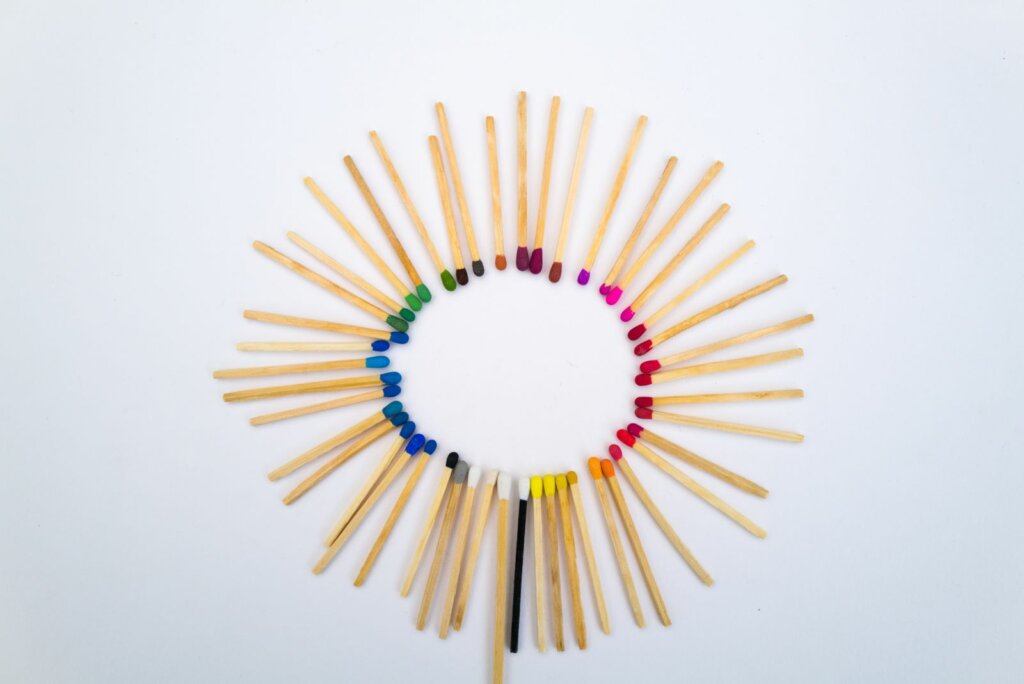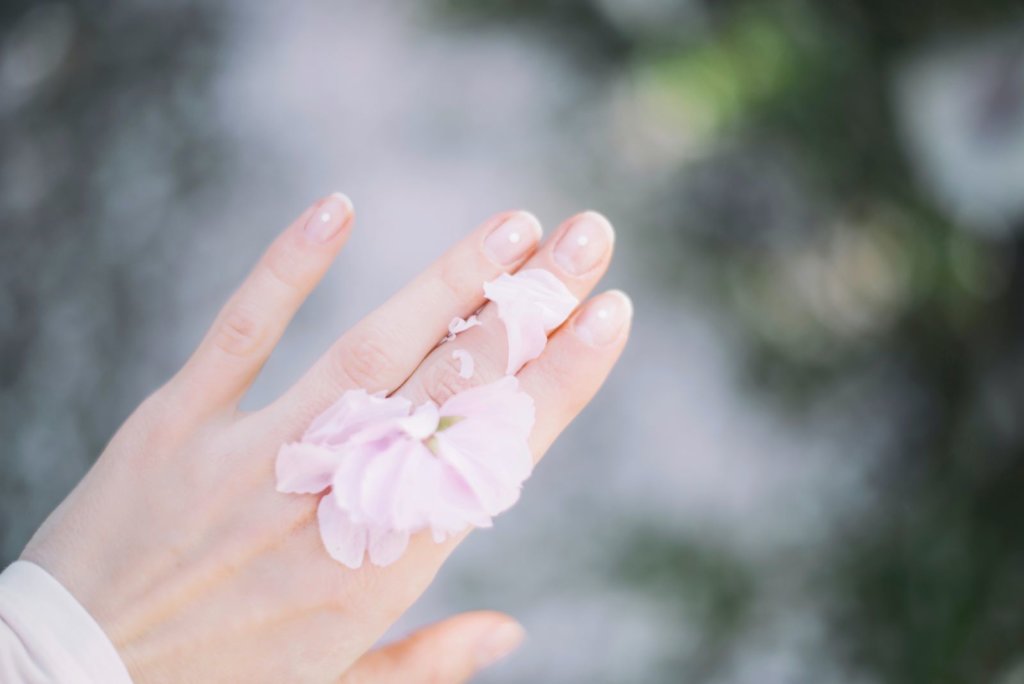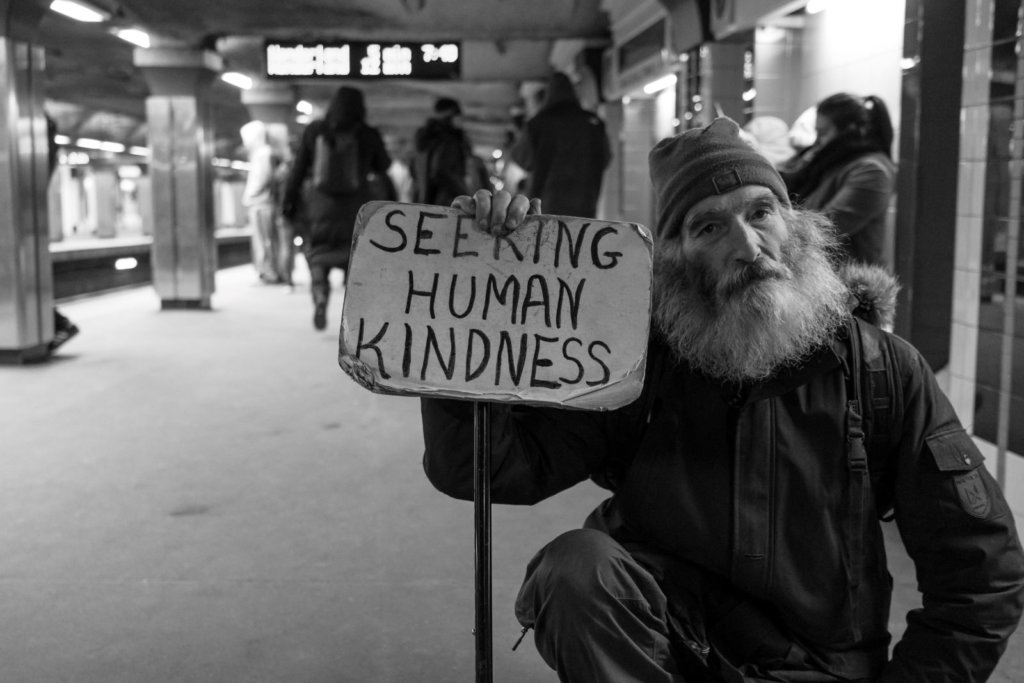When I was 7, there was a boy in my first-grade class that I didn’t like. I don’t remember why, his name, face, or any identifying features, but what’s seared into my brain is how I treated him on Valentine’s Day. It’s standard practice to give all the kids in your class a Valentine and for this boy, I decided to let him know how I really felt about him. I took out a piece of notebook paper and wrote, “I hate you, I hate you, I hate you, I hate you, I hate you,” until I ran out of space. But that didn’t feel like enough so I asked my brother, “What’s a word that means over and over again?” and he responded, “Et cetera,” which of course I didn’t know how to spell.
So at the end of a page filled with “I hate yous” I tacked on an “etc.” I tucked the paper into an envelope and signed my name so he would know it was from me. The next day I watched his face crumple reading my “Valentine.” He showed the piece of paper to our teacher and she said, “I’m sure she didn’t mean it.” I remember feeling mixed emotions because I did mean it. I did hate him but at the same time, I didn’t expect him to respond the way he did. In my mind, he was a monster, incapable of emotions, but seeing how hurt he was gut-punched me.
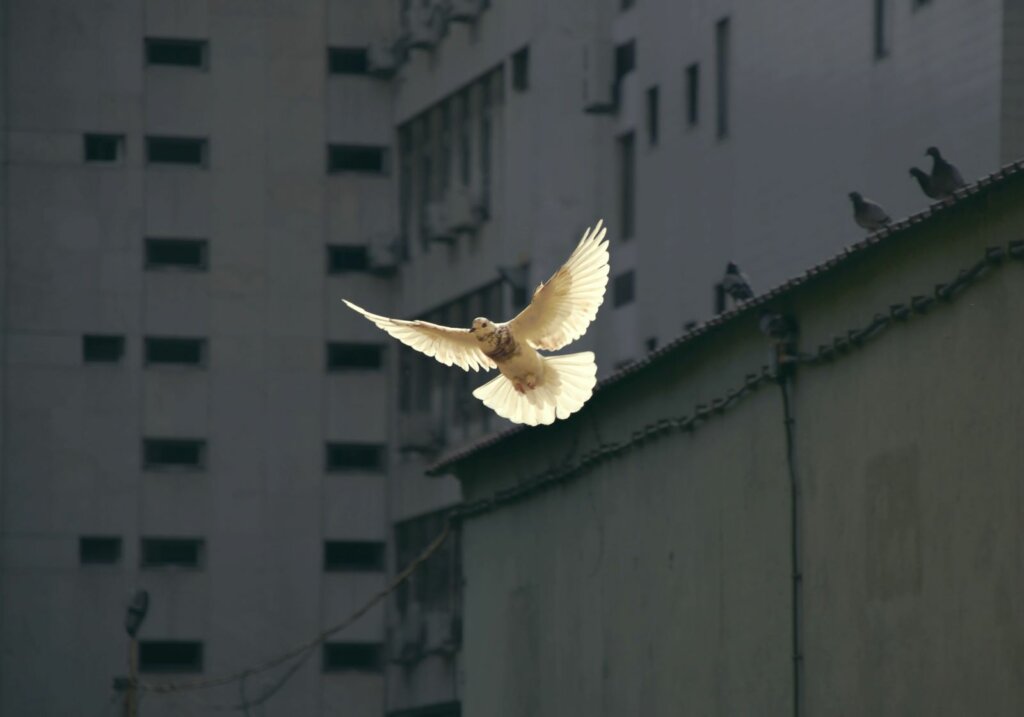
Peace is possible if we do the internal work. Photo by Sunguk Kim on Unsplash
As a 7-year-old, I wasn’t thinking about how this little boy would feel. All that mattered was expressing how I felt because I was the wronged party. He was mean to me. What I did to this little boy is what some people are doing now – they are only thinking about how they feel, not the impact their words will have on other people. What I also did to this boy is I dehumanized him. As a 7-year-old, there weren’t dangerous consequences to my perception but that’s not true for adults.
When you perceive a human being as an animal or a monster that must be destroyed, you will put them in a cage. You will bomb the crap out of their homeland. You will decapitate them and their family. You will do whatever it takes to show them how you feel without considering how they feel.
It’s worth mentioning that balance is important. There is such a thing as considering someone else’s feelings too much and that’s known as codependence. By and large though, we’re suffering from a lack of empathy, not too much of it. As a highly sensitive person, I’ve been crying about the ugliness in the world. It feels not great to read people are saying, “Gas the Jews!” and “Wipe Gaza off the face of the Earth!” Have we forgotten, just like I did, that words hurt? They don’t leave a visible mark like bruises do but can ring in your ears long after a physical injury has healed.
What do we do about this? How can we remember each other’s humanity when it feels so very challenging? There’s a Nonviolent Communication (NVC) exercise called simply “the exercise” that is so powerful for this. It’s a way to shift your inner landscape closer to connection, compassion, and peace. Any movement in that direction is a win so don’t worry if you’re not suddenly filled with peace after doing it.
I know it’s easy to let anger fuel us, I’m guilty of that myself, but if you have even a modicum of a desire to create a peaceful planet that goes beyond the limits of small social identities, I encourage you to do the exercise I linked to. Not only that, share it with your friends. As humans, we don’t have to give in to our baser instincts. There is another way. We can move toward peace but it requires more than a ceasefire. It requires us to view each other differently.
I dream of a world where we recognize how dangerous it is to only think about how we feel and not how others feel. A world where we don’t let anger and hatred fuel us. A world where we do the work to see others as human beings no matter how hard it is. A world where we all work together to move toward peace.
Another world is not only possible, it’s probable.
I, like many, have a lot of feelings about the smattering of recent U.S. Supreme Court decisions. And then there are the bills targeting the LGBTQIA+ community. The trend I’m noticing is more divisiveness, more separation, and more hate, frankly. Is this what human beings are destined for? Are we doomed to splinter off into smaller and smaller groups and engage in constant “us versus them” culture wars?
Maybe yes, maybe no but according to neuroscience, our brains are wired for connection and cooperation. Neuroscientist Matthew D. Lieberman, director of UCLA’s Social Cognitive Neuroscience Lab wrote a book called Social: Why Our Brains are Wired to Connect. He says, “To the extent that we can characterize evolution as designing our modern brains, this is what our brains were wired for: reaching out to and interacting with others. These are design features, not flaws. These social adaptations are central to making us the most successful species on earth.”
There’s also a study out of Emory University led by Gregory Berns who learned that when pairs of volunteers cooperated with one another, the reward circuits of the brain were activated. These are the same regions that are activated by drugs. The activation happened only when paired with a human – when the study participants were paired with a computer, they didn’t have the same response.
Volunteers were hooked up to an fMRI scanner and invited to play the “Prisoner’s Dilemma” game. Each volunteer pressed a button to indicate when they were ready to play, and then each simultaneously pushed another button to indicate if they wished to cooperate with, or betray, the other player.
The most common outcome was volunteers mutually cooperated with one another. Berns suggests people are hard-wired to cooperate because the brain associates cooperation with reward. Others are quick to point out that correlation is not causation but I’m inclined to agree with Berns because regardless of whether it’s due to our brains or something else, we want to connect with other people. We are wired for oneness.
What so often gets in the way is exactly what we’re seeing now: socio-sentiment. Socio-sentiment means loyalty to a particular social group to the exclusion of other groups. You already know what a world dominated by socio-sentiment looks like – we’re living in it. What’s the solution?
My spiritual teacher says, “To liberate society from this unbearable situation, consciousness will have to be aroused among the people; their eyes will have to be opened by knowledge. Let them understand the what’s, the why’s, and the where’s. Thus, study is essential, very essential.”
In other words, biologically, we want to connect with others, we’re made for connection, and what’s getting in the way is cultural conditioning that says this group is good and this group is bad. We all do this. The challenge then is to see every person as a human being, not a label. Personally, I do this by practicing empathy and guessing what someone else is feeling and needing. And when I do, I feel even more connected. It’s almost as if my brain is wired for oneness and spurring me on.
I dream of a world where we promote unity instead of division. A world where we recognize we are all humans with the same feelings and needs. A world where we stop propagating socio-sentiment and instead recognize we’re all in the same group. A world where we remember we are wired for oneness.
Another world is not only possible, it’s probable.
I learned something interesting recently. If people think they’re supposed to help someone else, they will. If they don’t think it’s their responsibility, they won’t help. There’s a widespread misconception floating around about the bystander effect, which is when people are less likely to intervene during emergencies when others are present and witnessing the same situation. In 1968, John Darley and Bibb Latané conducted an experiment that simulated an emergency.
Study participants were told they would be discussing their experiences in college with other participants. Each person was told either one, two, or five other participants would be chatting with them, but in separate rooms. The other “participants” were prerecorded voices that were played at points throughout the experiment. During the discussion, the person would hear one of the other “participants” call for help while having a seizure. The study measured the time it took for each participant to respond to the emergency.
The researchers found participants who believed they were speaking with one other person intervened at a much higher rate than those who believed others, in addition to themselves, were a part of the discussion. Psychologists have interpreted that to mean people freeze when they’re in a group because they think someone else will help instead of them. However, in 2015, Kenneth Brown at the University of Iowa gave a Tedx talk about how the bystander effect is complicated.
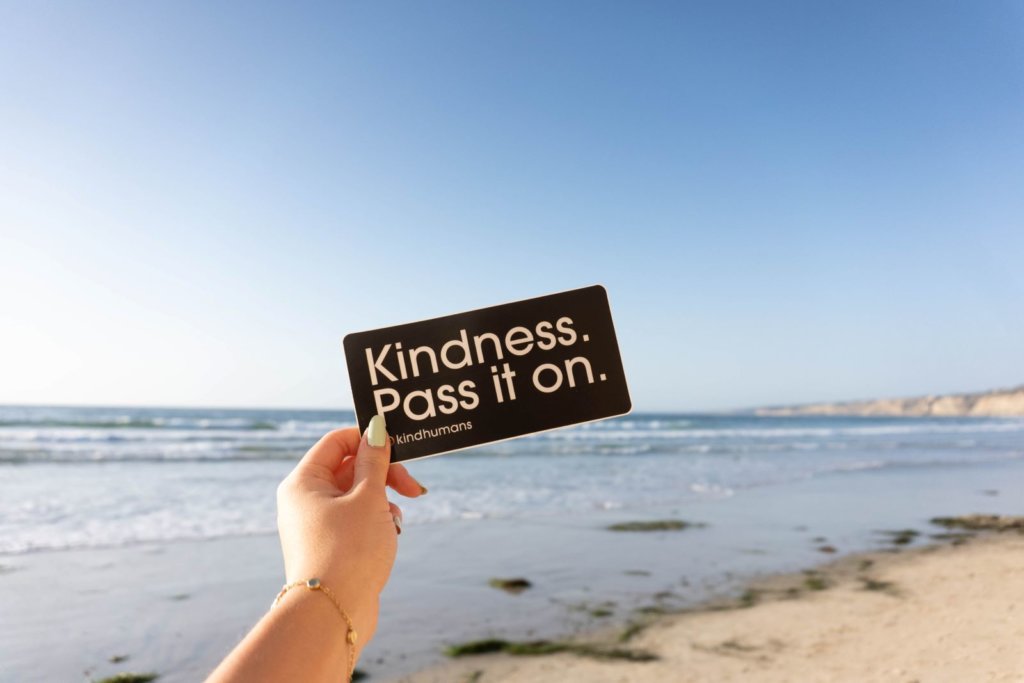
Kindness can spread. Photo by Mei-Ling Mirow on Unsplash
In his psychological studies, he found when subjects were told it was OK to help if something was wrong, that they wouldn’t ruin the study by doing so, the participants sprang into action when help was needed. There was no longer diffusion of responsibility and gone are the questions, “What does the researcher expect of me? What will happen if I step forward?” If it’s clear helping with something is what people are supposed to do, they do it.
This got me thinking about myself, naturally. I’m the type of person who will shout at a bus driver to wait for a fellow passenger. I don’t even think about it. It’s practically involuntary. On Saturday, I saw a man struggling with a small amp, a backpack, and a posterboard so I asked him if he needed any help (he did). Why do I do these things? Is it because I’m inherently a good person? No. I do these things because as a part of my spiritual practice, every morning upon awakening I say three oaths. One of them is I will help others according to my capacity.
By starting every morning with this thought in mind, I inherently believe it’s my responsibility to help out when and where I can. I haven’t conducted a study to determine whether other members of my spiritual community feel and act in the same way, but I can say for certain my family operates this way.
One time in Chicago my sister and I witnessed a man and woman fighting in the street perpendicular to us. Rosie stopped in her tracks and when I asked her why, she said, “I’m waiting to see if that woman needs help.” After my mother’s medical school graduation, we came upon a man lying in the street with a cut on his forehead who was semi-conscious. After we determined another bystander had already called 911, my mom ripped off her graduation gown and placed it over the top of him to keep the guy from going into shock. (She didn’t have any medical equipment on her so that’s all she could do.)
These are only a few of the incidents I know about. There are also the regular occurrences of help, like how my dad will do free tax work for certain clients, or my brother won’t charge for website design to help out a worthy person or cause. My brother and sister aren’t active members of my spiritual community, but they grew up in the same household I did where service was emphasized. It has me wondering what the world would be like if everyone saw it as their responsibility to help others according to their capacity.
Amelia Earhart says, “No kind action ever stops with itself. One kind action leads to another. Good example is followed. A single act of kindness throws out roots in all directions, and the roots spring up and make new trees. The greatest work that kindness does to others is that it makes them kind themselves.”
I dream of a world where people are kinder to each other. A world where we understand in order for that to happen, we each must take responsibility for helping others to the best of our capacity. A world where we understand kindness is contagious and we do our part to pass it on.
Another world is not only possible, it’s probable.
All week the topic of self-compassion versus self-esteem has come up in conversation with friends. I learned recently that what I thought was self-compassion is actually self-esteem and the two are very different! That matters because self-compassion is the trait that gives us more motivation, more grit, better health, and greater happiness, according to research.
Self-compassion is the desire to alleviate your own suffering whereas self-esteem is a positive judgment of yourself. It’s saying things like, “I’m a good person, I’m a success, I’m attractive.” Self-esteem is important because the opposite, hating yourself, can lead to some dark places, but the trouble with self-esteem is it’s conditional. It’s dependent on you continuing to do things that bolster your self-worth: acing a test, killing it at work, etc. What happens when you fail?
As for me, I keep leaning into self-esteem when I fail. I say things like, “It’s OK, you’ll do better next time.” Or, “You got this! You can do it!” The trouble is, self-esteem messages don’t work.
Juliana Breines and Serena Chen conducted a study at UC Berkeley about a decade ago where students were given a difficult vocabulary test that everyone failed. The researchers split the students into three groups: a self-compassionate group, a self-esteem group, and a control group.
In the self-compassion group, students were told, “If you had difficulty with the test you just took, you’re not alone. It’s common for students to have difficulty with tests like these. If you feel bad about how you did, try not to be too hard on yourself.” The self-esteem group was told, “If you had difficulty with the test you just took, try not to feel bad about yourself – you must be intelligent if you got into Berkeley!” The control group was told nothing.
The students were informed they would receive a second vocabulary test and were given a list of words and definitions they could study for as long as they wanted before taking the next test. The researchers used study time as a measure of students’ motivation. They found students who were told to be self-compassionate after failing the first test spent more time studying than those in the other two conditions. Not surprisingly, study time was linked to how well the participants performed on the second test.
Self-compassion helps with more serious issues too. Numerous researchers found that self-compassion helps war veterans. Soldiers who practiced self-compassion were less likely to develop PTSD symptoms and functioned better in civilian life. They were less prone to use drugs and alcohol, and were less likely to commit suicide.
What is self-compassion? It has three main components according to Dr. Kristin Neff, a preeminent researcher on the topic. She says self-compassion is self-kindness, common humanity, and mindfulness. Self-kindness means showing care, understanding, and support toward ourselves when we fail. Common humanity involves recognizing all humans are imperfect, that you’re not alone with your flaws. Mindfulness is being aware of the pain associated with failure without trying to shove it away.
For the past week, instead of beating myself up for not exercising as much as I’d like, or telling myself, “Come on! You can do it!” I practiced self-compassion. I said, “Hey, this week has been stressful and you’re tired. It makes sense that you don’t want to exercise. Lots of people feel that way. When you’re ready, I know you’ll move your body in a way that feels good.”
It was the first time in a while that I didn’t have a nagging sensation I was doing something wrong for being sedentary. It was the first time in a while I didn’t conduct internal bargaining and say, “You can rest today, but tomorrow you need to make up for it.” Instead, I gave myself what I needed and it was glorious. And wouldn’t you know it? When I felt energetic, I was motivated to work out because it came from a place of love, not fear. There’s something to this self-compassion thing after all.
I dream of a world where we show ourselves love, care, and understanding when we fail and make mistakes. A world where we ditch the conditional self-esteem messages and instead give ourselves the unconditional support we crave. A world where we all practice self-compassion and recognize it for the valuable trait it is.
Another world is not only possible, it’s probable.
I’m upset right now. I’m upset by callousness, by selfishness, and the expression of various -isms (racism, classism, antisemitism, etc.). It hurts my heart to hear people say things like, “All homeless people should be euthanized for their own good,” or “I don’t care if other people suffer because I’m fine.” Someone on my Facebook feed even said, “I don’t like Jews. They’re not trustworthy.” As a Jewish woman, that one in particular hit home.
I’ve literally cried about all of these statements. I have so much grief that people can be this mean. My first impulse is to argue, to point out statistics and news articles that counter the person’s point of view. However, as you likely already know, that doesn’t work. That’s why there are so many memes about how arguing on the internet accomplishes nothing. If anything, once you start arguing with someone, they only become more entrenched in their point of view.
I brought all of this sorrow to my meditation, holding the question, “What can I do about all of this?” and the answer that came back was the peace prayer that is often misattributed to St. Francis. I’m sharing it in full here:
Lord, make me an instrument of your peace.
Where there is hatred, let me bring love.
Where there is offense, let me bring pardon.
Where there is discord, let me bring union.
Where there is error, let me bring truth.
Where there is doubt, let me bring faith.
Where there is despair, let me bring hope.
Where there is darkness, let me bring your light.
Where there is sadness, let me bring joy.
O Master, let me not seek as much
to be consoled as to console,
to be understood as to understand,
to be loved as to love,
for it is in giving that one receives,
it is in self-forgetting that one finds,
it is in pardoning that one is pardoned,
it is in dying that one is raised to eternal life.
We see that this sentiment works. It’s the story of former KKK Grand Dragon Ken Parker who left the group after repeated encounters with people who he used to consider his enemies. It’s the story of ex-KKK member Chris Buckley who befriended Dr. Heval Kelli, a cardiologist, civil rights activist, and oh yeah, a Muslim.
It’s also in line with my spiritual philosophy. My teacher said genuine love for humanity is the only way to solve problems great and small.
“This love will give people guidance; it will show them what to do and what not to do,” he said. “It is not necessary to study great numbers of books or to rely upon those who speculate with the future of the silent masses. The only essential requirement is to look upon humanity with genuine sympathy.”
That feels both easy and difficult right now. I have lots of sympathy for marginalized groups, but not so much for people who are antisemitic, for instance. However, I know that people who have been hurt themselves hurt other people. This woman who said Jews aren’t trustworthy is also coming from a place of wounding, and me railing against her will only calcify her opinion that Jews are terrible. The best thing I can do for anyone is continue to love them, to show them kindness, and remind them we aren’t so different after all.
I dream of a world where we embody the peace prayer as much as we can. A world where we sow love instead of hate. A world where we bring harmony in the time of discord. A world where we bring light into darkness. A world where we become the type of person we want others to be.
Another world is not only possible, it’s probable.
In journalism we have a saying, "content is king." It means good content sells newspapers, boosts page views, and garners subscribers. While I agree "content is king," I think the biggest king of all is compassion. The word "compassion" comes from Middle English via the Latin word compati to sympathize, or com- + pati to bear, suffer. In my mind that means to bear together, to understand where another person is coming from.
Lately, I find compassion is so important because it gives me peace and serenity. When I can postulate why somebody is acting the way they are, I am better able to forgive them, to let whatever it is go. I don't stay angry or resentful; instead I'm able to glide through life like water running off a duck's back — that stuff slides right off. For someone who spent much of her life not at peace, this is a big deal. It's a relief to not keep an emotional scorecard, to fume over how people "should" behave.

Even the Buddha says to fill your mind with compassion.
For instance, last night my taxi driver was laughably bad. He kept mixing up his numbers and directions. "Did the GPS say to turn left on 56th st?" "No," I replied, "65th." "Left or right?" "Left." He wanted to turn down Telegraph when the GPS clearly said Shattuck. (Oh, and yes, those are California street names because I'm back in California!) When we pulled up to my rental, he told me there was a $5 extra fee for crossing the bridge. I'm pretty sure that was a scam but I paid it anyway. I'm not angry at the guy for his possible machinations because if dude is so desperate and fearful about money, how can I possibly be angry at him? Don't get me wrong, I'm going to call the cab company and talk to them about it, but continuing to feel angry about it accomplishes nothing.
Having compassion means I can deal with it and let it go. I'm letting that stuff go! I don't need any more emotional baggage, thankyouverymuch — I have plenty to deal with already. One of the absolute best ways to take the wind out of my sails and help me to forgive, to find compassion for other people, is asking, "Do I remember other people (myself included) are emotionally ill and frequently wrong?" Because they are and I am. Ain't nobody escaping through life unscathed. We are all warriors on this spiritual journey. And let me tell you, the more I forgive and have compassion for other people, the more I have it for myself. The more I'm able to let myself off the hook when I do something dumb or put my foot in my mouth. And ladies and gentlemen, that is a miracle.
I dream of a world where we all have compassion for ourselves and each other. A world where we let go of the things that bother us. A world where we understand where people are coming from. A world where we realize we're all in this together doing the best we can.
Another world is not only possible, it's probable.
Last week I wrote about the “next” economy or “gift” economy. This week I’m excited because it seems en masse people are realizing our current economic system is flawed. More than a thousand people have gathered for Occupy Wall St. and similar events are popping up in cities around the United States.
For those of you who don’t know, the movement is the expression of people dissatisfied with being a part of the 99% of the population who are not super wealthy. There is a whole tumblr about it actually. Here is one of the entries:
“I have my health. I have a job. I have no debt, and no dependents. I have a tiny bit of savings and a small retirement fund that I cling to.
But Wall Street is hungry, and our political leaders have shown whose side they are on. Business and government will work together to steal what we have.
I did not get here, to this tiny island of stability, alone. I owe so much to my brothers and sisters who worked hard for the ideals of DEMOCRACY and LIBERTY and FREEDOM.
And I will not stand by, silent, while any of my brothers and sisters falls through the cracks: the sick, the unemployed, and underemployed, the kids who depend on us all.
I will not stand by while the One Percent who have manipulated our social contract to their vast favor leave the rest of us to fend for ourselves.
I will not stand for it.
And I am not alone.
I am the 99%.”
You might be asking, why exactly this inspires me. It’s because about 10 years ago I had a conversation with a classmate, trying to explain why capitalism was a flawed system and she said to me, “If those people worked hard for their money I don’t see why we should limit how much they make. I don’t see why they can’t make as much money as they want because they earned it.” I’m inspired by this Occupy Wall St. protest because it shows me people are becoming more heart centered. They are starting to become more compassionate. They’re starting to see what happens to the homeless man down the street is not ok. I’m inspired because people are starting to care. As a 17-year-old it was hard for me to put into words capitalism doesn’t work because it rewards the greedy and it’s selfish. How on earth could I win the argument if the person I was talking to would respond by saying, “So?”
I love that we’re showing compassion for each other. That people are saying, “Hey, you know, greed is not ok and I won’t stand idly by watching someone gobble up the wealth while the rest of us are fighting for scraps.” I love that we’re wanting to support each other. That we’re wanting to ensure everyone in the world gets their needs met. How AMAZING is that?
I dream of a world where everyone gets their basic needs met. A world where we are all taken care of because we take care of each other. A world where we’re supported. A world where wealth is shared and we show respect and compassion for our fellows. A world where we live more in our hearts than in our heads.
Another world is not only possible, it’s probable.
The other day on my way to work I was stopped at a red light waiting for the little green man to indicate it was safe for me to cross the street.
A cab driver had the misfortune to be jutting out on the crosswalk and infringing in the space ahead of him, perpendicular to oncoming traffic. Cars driving past honked at the man; pedestrians shook their fists and called the cabbie a jerk (or worse). While stopped at the light, witnessing the spectacle, I could feel the anger/annoyance/frustration bubbling off those around me. I felt how their anger contributed to a bad vibration. To creating a sense of unrest and an emotion quite the opposite of peace.
The now famous Heather mentioned to me many moons ago about nonviolent communication, which basically operates off the premise language has a big affect on the state of the planet. If we communicate with each other peacefully, in a nonviolent manner, compassionately, we promote peace and harmony amongst ourselves. The harmonious environment creates a ripple effect, spreading from one person to another but also changes the Earth in an energetic way. The more peace we experience in our own lives, the more peace we can bestow upon the planet.
What excites me about nonviolent communication is it places the power to create peace in my hands, in your hands, in everyone’s hands. It feels like a tangible way to promote peace everyday. Instead of banging down the door of those in power, it’s a change I can make in my life with some very real results. Here is a youtube clip from the founder of NVC, Marshall Rosenberg talking about a mediation experience between two warring tribes:
I dream of a world where we live in peace. A world where everyone everywhere feels safe at all times, day and night. A world where violence is not tolerated on a global or a local scale. A world where we treat each other with compassion and respect. A world where we communicate effectively, really listening to one another and try to meet the other person’s needs. A world where we live harmoniously with one another in peace and prosperity. A world where we feel protected at each and every moment. A world where peace reigns supreme.
Another world is not only possible, it’s probable.
